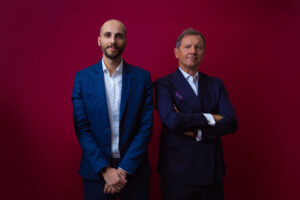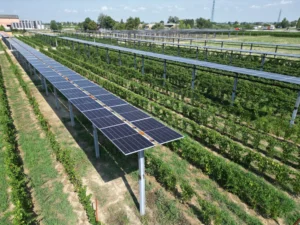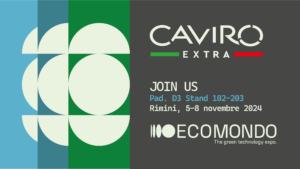The Caviro Group has presented its SECOND SUSTAINABILITY REPORT, a new step in a journey that began over 50 years ago. From the vineyard to the transportation of the finished product, via the optimisation of waste and the development of a completely circular economy model: Caviro’s activities have proven to be sustainable and capable of enhancing the value of its members’ products, taking account of ethical, environmental and economic aspects.
Sustainable development is a concept inherent in the cooperative DNA of Caviro. The priority of the company is not just maximising profits but also – and above all – people and the desire to meet their needs without compromising those of future generations.
The three pillars of Sustainability
Making the most of every resource to construct a better and more responsible future is the objective that Caviro pursues according to the three principles of Ecological, Economic and Ethical sustainability.
- Ecological Sustainability so the virtuous circular economy model brings positive benefits to the community;
- Economic Sustainability so the Group’s balance sheets reflect solidity and allow for long-term projects;
- Ethical Sustainability so the effects of the Group’s commitment are positively reflected on the supply chain and the communities it serves.
Transforming the by-products of the winemaking and agro-industrial chain into products with high added value is the mission adopted by Caviro Extra, the Group company that makes the “From Vineyard to Vineyard” virtuous circle possible. Its aim is to eliminate the concept of waste, considering every raw material as a precious resource that can be processed and transformed into a new natural ingredient and put back into circulation.
It is a cycle that unites man and the environment, grapes and the land, the present and the future.
The Caviro Group’s circular economy in numbers
In the 2019/2020 wine growing year alone, 73,000 tonnes of marc and 24,000 tonnes of lees were transformed into noble products.
Caviro has long prioritised renewable energy, producing sustainable energy from both its own processing waste and the waste of other companies in the food sector.
The development of environmental services led to the establishment of Enomondo, a joint venture with the Hera Group tasked with producing renewable electricity from grape processing waste and prunings. Caviro meets 100% of its energy requirements from this process, making it totally self-sufficient.
The numbers at a glance:
- 555,000 tonnes of agro-industrial waste processed every year
- +99% of waste recovered and enhanced
- Total energy self-sufficiency: 100% green energy
- 82,000 thousand tonnes of CO2of fossil origin saved
Adherence to the UN 2030 Agenda
Caviro’s idea of all-round sustainability is also evident in its alignment with as many as 7 UN 2030 Agenda goals. In fact, Caviro:
- advocates the protection of people’s well-being and health by developing human resources and promoting consumer safety (Goal 3),
- works to promote universal access to clean energy by producing renewable energy (Goal 7),
- supports employment and sustainable economic growth by developing new products, internationalising and improving its profitability and business strength (Goal 8)
- promotes fair and responsible industrialisation (Goal 9)
- encourages the adoption of sustainable production and consumption models, with the circularity of its production cycle (Goal 12)
- protects local wine production through the adoption of sustainable agricultural practices that combat climate change (Goal 13)
- promotes responsible and inclusive societies, working together with local and national institutions (Goal 16).



